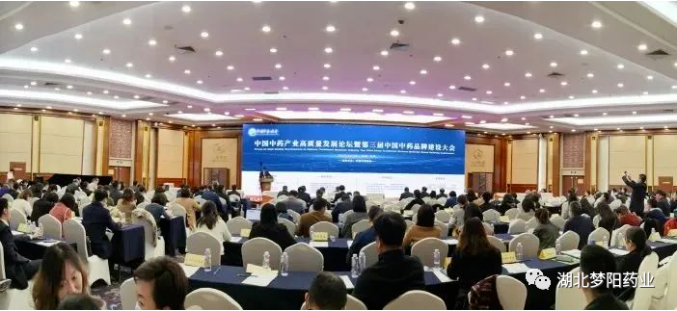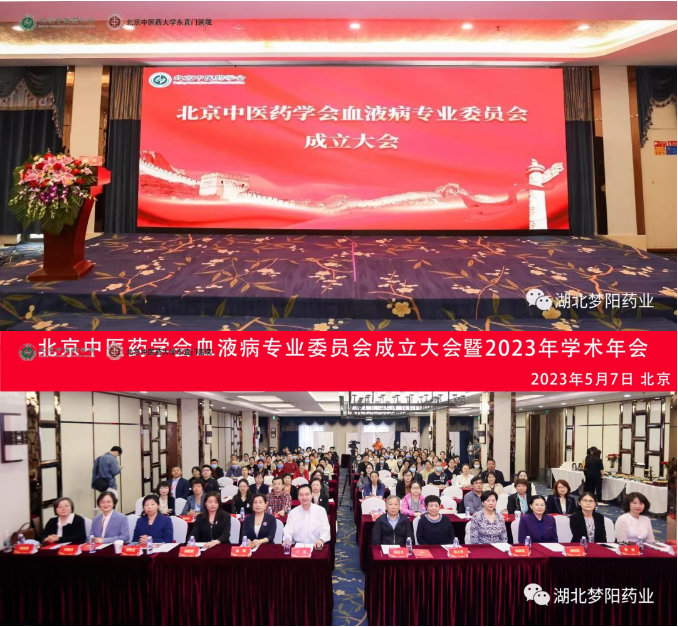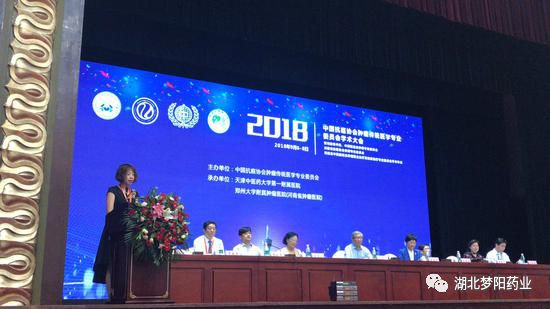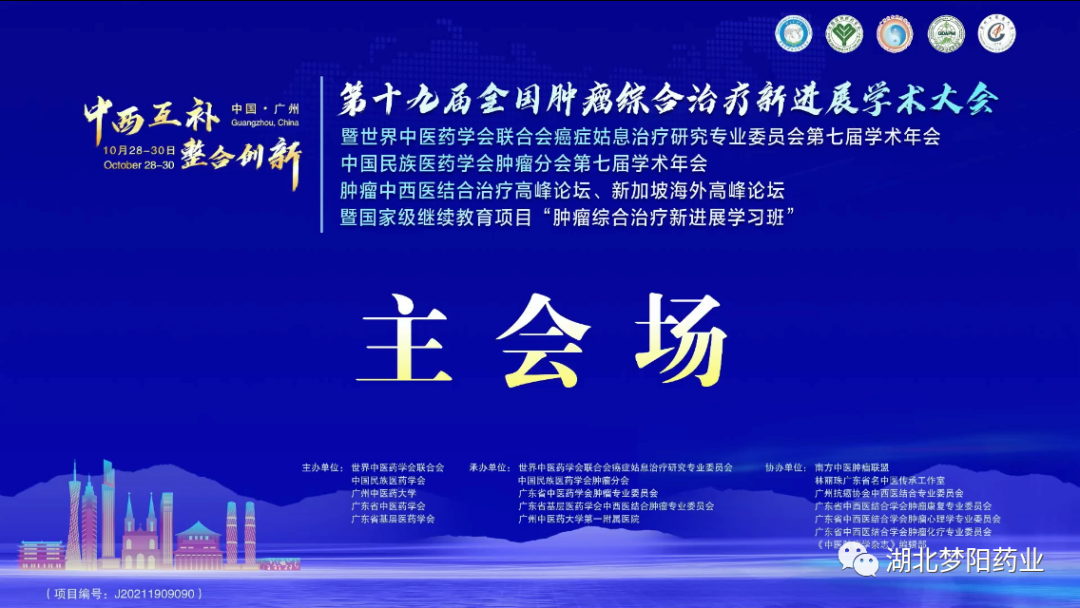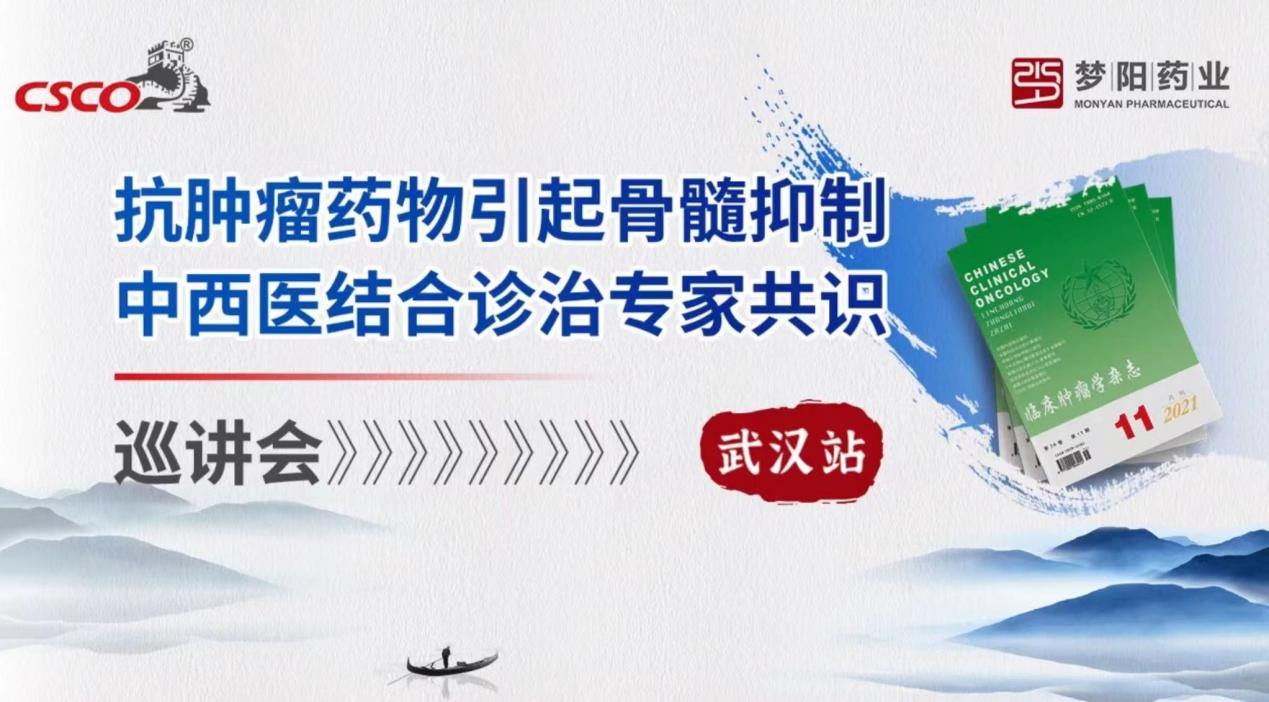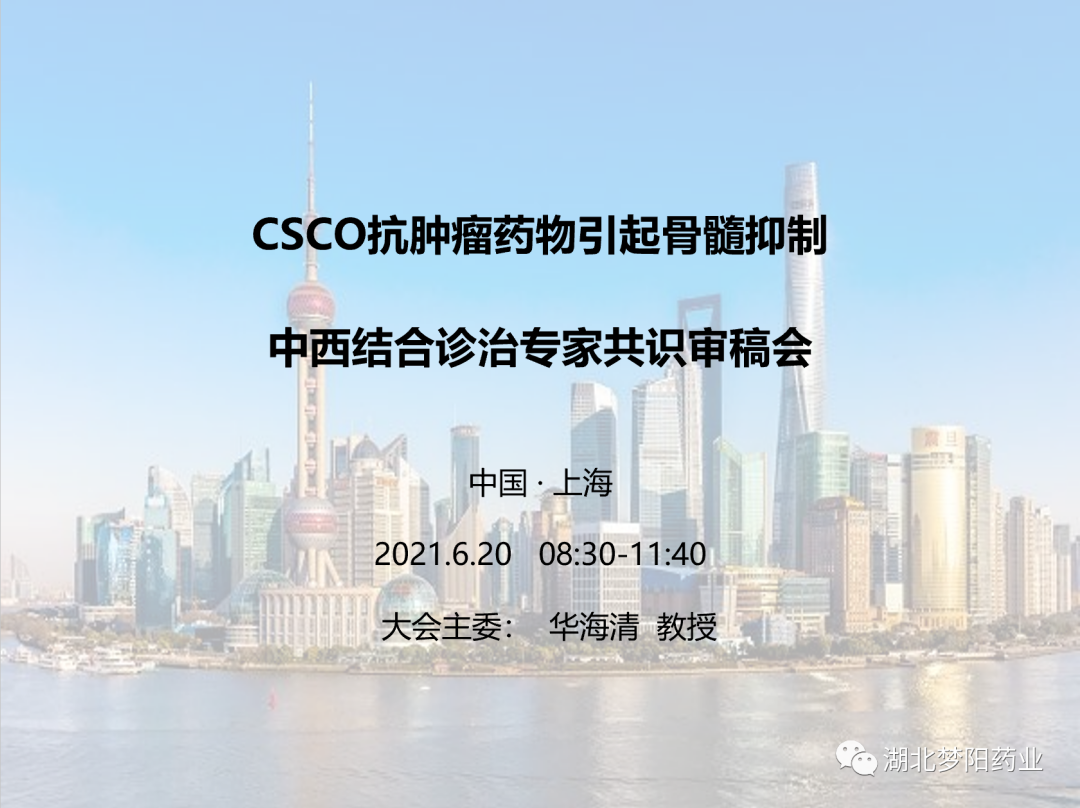2023-03-25
Many friends of cancer patients may have this feeling: After finishing chemotherapy, they feel finally liberated, and they can go home and gather with friends to chat and relieve their inner pressure. But as soon as I got home, I found that I was so tired, I had no energy, I couldn't lift my spirits, and I just wanted to rest.
What's going on here? If you feel extremely tired after chemotherapy, have symptoms such as fatigue, lack of energy, lack of breath, weakness in the waist and knees, dizziness and other symptoms, which do not relieve after rest, you need to be vigilant: bone marrow suppression after chemotherapy.
What is myelosuppression?
Myelosuppression after chemotherapy refers to a condition in which when a patient uses anti-tumor chemical drugs to kill tumor cells, it also causes damage to immature hematopoietic cells in the bone marrow. Laboratory tests (blood routine) mainly showed a decrease in white blood cells, granulocytes, red blood cells, and platelets. The main clinical manifestations are dizziness, fatigue, sore limbs, loss of appetite, listlessness, low-grade fever, etc. In severe cases, secondary infection, shock, and even life-threatening may occur.
Our usual criteria for judging the degree of myelosuppression are formulated according to the World Health Organization (WHO) standards, which are divided into grades 0 to Ⅳ:
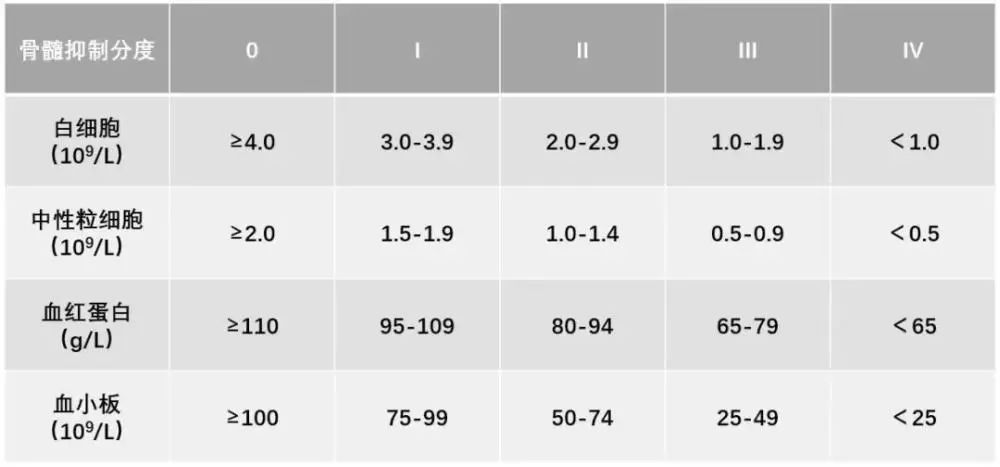
What are the rules for the occurrence of myelosuppression?
Neutropenia usually occurs one week after the initiation of chemotherapy, reaches the lowest point on the 10th to 14th day, slowly rises after maintaining a low level for 2 to 3 days, and returns to normal on the 21st to 28th day, showing a U-shape. Thrombocytopenia appeared later than granulocytopenia, and it also dropped to the lowest value in about two weeks. It dropped rapidly, and then recovered rapidly after staying at the bottom for a short time, showing a V shape. The red blood cell drop occurs later. As shown below:

How to prevent myelosuppression after chemotherapy?
Specifically, there are the following aspects:
1. According to the occurrence law of myelosuppression, the indicators are prone to drop one week after the end of chemotherapy; therefore, in general, to ensure safety, the doctor will review the blood routine once when the patient is discharged from the hospital, and ask the patient to re-examine the blood routine one week after discharge. Prevent myelosuppression. However, some patients think that there is no problem with their indicators when they are discharged from the hospital, so there is no need for re-examination. This kind of understanding is wrong, because myelosuppression is prone to occur one week after the end of chemotherapy, and the normal indicators at discharge do not mean that the indicators will be normal one week later. Therefore, patients should not take chances, and should follow the doctor's advice to draw blood for reexamination in time.
2. In addition, if the patient feels extremely tired after discharge from the hospital, has symptoms such as fatigue, lack of breath, dizziness, and pale lips, which do not relieve after rest, do not stick to the 1-week review time. Seek medical attention.
3. Don’t worry too much if myelosuppression occurs during the blood routine check. If you find a problem, you can deal with it in time. For moderate and severe myelosuppression, doctors will give timely intervention measures. At present, biological agents are commonly used in Western medicine treatment, such as granulocyte colony-stimulating factor (G-CSF), thrombopoietin (TPO), interleukin-11 (IL-11), erythropoietin (EPO); even select component blood transfusion, Umbilical cord blood transfusion, hematopoietic stem cell transplantation and other treatments.
If it is only mild bone marrow suppression, you can eat medicated food or Chinese patent medicine that nourishes qi and blood, nourishes essence and marrow, and rechecks the indicators in time. Recommended prescriptions, such as raw white orally, are included in the 2019 edition of the national higher education "13th Five-Year Plan" textbook "Hematology of Traditional Chinese Medicine", national clinical pathways, "Guidelines for Diagnosis and Treatment of Malignant Tumors", and "Expert Consensus on Palliative Care of Tumors". Liquid (shengbai mixture). Composed of epimedium, psoralen, aconite (made), medlar, astragalus, spatholobus, madder, angelica, reed rhizome, radix radix, and licorice. Warming the kidney and invigorating the spleen, nourishing qi and blood. It is used for patients whose leukopenia caused by cancer radiotherapy and chemotherapy belongs to deficiency of spleen and kidney yang, deficiency of qi and blood, such as mental fatigue, lack of breath, lazy speech, chills, anorexia, loose stools, soreness of the waist and knees, etc. oral. 40ml each time, 3 times a day.


Bone marrow suppression is the most common and serious adverse reaction after chemotherapy. We must pay attention to this problem, discover it in time, intervene in time, and handle it properly. The prognosis of this disease is relatively good. Don’t worry too much about mild reactions, but be cautious about severe reactions , need timely symptomatic treatment.
Of course, this also reminds patients that after being discharged from the hospital, they need to pay attention to their physical condition, rest properly, and eat nutritiously;

